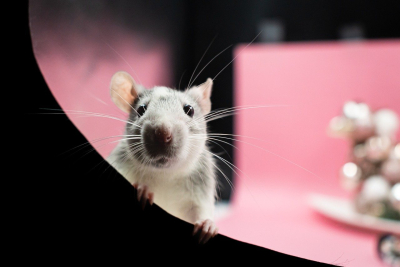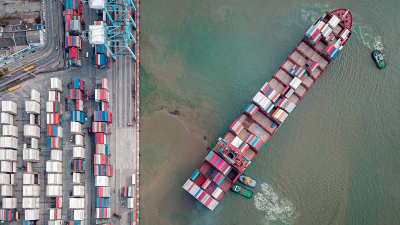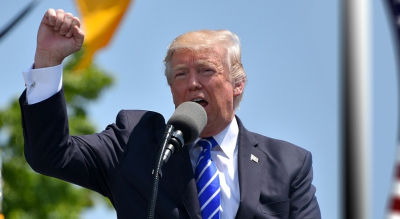Foreign interference details
The heavily redrafted NSICOP report, released on Monday, claims that unidentified members of the Canadian Parliament have "wittingly" collaborated with foreign states, notably China and India, to influence political outcomes in Canada. The implicated individuals are said to engage in actions such as secretly communicating with foreign missions, accepting disguised foreign funds, and sharing sensitive information with foreign powers. These activities could potentially meet the legal definitions of treason, according to national security experts.
Response from officials and experts
The disclosure has prompted a storm of criticism and calls for transparency on Parliament Hill. Public Safety Minister Dominic LeBlanc, citing the Security of Information Act, has refused to release the names of the implicated individuals, arguing that doing so could compromise ongoing investigations and national security. Meanwhile, NSICOP chair David McGuinty expressed that the committee is unable to reveal the identities due to legal constraints, leaving the next steps in the hands of the RCMP, which is conducting broader investigations into foreign interference.
Legal and procedural complications
The report also touches on the difficulties of prosecuting such cases. Experts like Michelle Tessier, former deputy director at the Canadian Security Intelligence Service, highlighted the challenges in converting intelligence into evidence admissible in court. Canada’s stringent requirements for full disclosure in criminal proceedings often prevent the use of classified intelligence, thereby hindering the effective prosecution of espionage and foreign interference.
Political reactions and the way forward
The allegations have led to polarized responses among political leaders. Conservative foreign affairs critic Michael Chong has demanded that Prime Minister Justin Trudeau make the names public, advocating for transparency as a means to counter the threats. On the other hand, former CSIS director Richard Fadden suggests that Parliament itself should investigate the allegations according to its own procedures. Amidst these disputes, some party leaders have agreed to receive classified briefings, while others, like Conservative Leader Pierre Poilievre, have declined, citing concerns over restrictions on discussing the information publicly.
The unfolding scandal of foreign interference in Canadian politics poses a significant threat not just to the integrity of the electoral process but also to the public’s trust in its leaders. As the situation develops, the balance between national security, transparency, and the legal rights of the accused remains a delicate challenge for Canada’s government and its democratic institutions. The outcome of this controversy could have lasting impacts on the nation’s approach to handling sensitive intelligence and protecting its political system from external influences.
Source: CBC






 Cats are the most popular pet in Canada. Despite their affectionate nature, they pose a significant threat to wild birds. Studies estimate that free-roaming cats are responsible for 100 million to 350 million bird deaths annually in Canada alone. Filmmaker Gavin Andrews explores this issue in his documentary, highlighting practical solutions for pet owners.
Cats are the most popular pet in Canada. Despite their affectionate nature, they pose a significant threat to wild birds. Studies estimate that free-roaming cats are responsible for 100 million to 350 million bird deaths annually in Canada alone. Filmmaker Gavin Andrews explores this issue in his documentary, highlighting practical solutions for pet owners.
 A powerful cold snap has engulfed central and eastern Canada this week, plunging temperatures far below seasonal averages. The extreme weather has strained power grids, disrupted daily activities, and posed serious health risks. Cities from Alberta to Atlantic Canada are battling the Arctic chill, with widespread power outages and warnings of frostbite.
A powerful cold snap has engulfed central and eastern Canada this week, plunging temperatures far below seasonal averages. The extreme weather has strained power grids, disrupted daily activities, and posed serious health risks. Cities from Alberta to Atlantic Canada are battling the Arctic chill, with widespread power outages and warnings of frostbite.
 Stress is a constant in modern life. From daily challenges to global issues, people are searching for ways to cope better. Scientists are now turning to rats for insights on building resilience to stress.
Stress is a constant in modern life. From daily challenges to global issues, people are searching for ways to cope better. Scientists are now turning to rats for insights on building resilience to stress.
 The consumption of ultra-processed foods is a growing concern worldwide due to its links to major health issues. From obesity to Type 2 diabetes, these foods contribute to alarming trends in public health. In the documentary Foodspiracy, Dr. Chris van Tulleken explores how corporations use science to make these foods addictive and how they affect the human body.
The consumption of ultra-processed foods is a growing concern worldwide due to its links to major health issues. From obesity to Type 2 diabetes, these foods contribute to alarming trends in public health. In the documentary Foodspiracy, Dr. Chris van Tulleken explores how corporations use science to make these foods addictive and how they affect the human body.
 Loneliness, a widespread and often unspoken issue, has been recognized as a significant public health concern. Research shows it can be as detrimental to health as smoking 15 cigarettes daily. With its impact on both mental and physical well-being, experts emphasize the importance of addressing and de-stigmatizing loneliness.
Loneliness, a widespread and often unspoken issue, has been recognized as a significant public health concern. Research shows it can be as detrimental to health as smoking 15 cigarettes daily. With its impact on both mental and physical well-being, experts emphasize the importance of addressing and de-stigmatizing loneliness.
 Cold water therapy, a practice gaining popularity among celebrities and athletes, is becoming a global trend. With promises of stress relief, reduced inflammation, and enhanced mental clarity, the technique attracts increasing interest. Though its origins date back to ancient Egypt, its benefits are only recently being thoroughly studied. Safety should always come first for those exploring this practice.
Cold water therapy, a practice gaining popularity among celebrities and athletes, is becoming a global trend. With promises of stress relief, reduced inflammation, and enhanced mental clarity, the technique attracts increasing interest. Though its origins date back to ancient Egypt, its benefits are only recently being thoroughly studied. Safety should always come first for those exploring this practice.
 n the arena of digital advertising and sales, a powerful email series can be the key to nurturing leads, final offers, and keeping sturdy customer relationships. Email sequences help automate communication, making sure well timed follow- ups and personalized interactions. Whether you're in sales, marketing, or customer fulfillment, studying e mail sequences can drastically impact your business effects.
n the arena of digital advertising and sales, a powerful email series can be the key to nurturing leads, final offers, and keeping sturdy customer relationships. Email sequences help automate communication, making sure well timed follow- ups and personalized interactions. Whether you're in sales, marketing, or customer fulfillment, studying e mail sequences can drastically impact your business effects.
 At ST Plastics, we stand for quality and precision in plastic extrusion. Leveraging cutting-edge technologies and extensive expertise, we design and manufacture profiles, pipes, and specialized solutions used across a wide range of industries.
At ST Plastics, we stand for quality and precision in plastic extrusion. Leveraging cutting-edge technologies and extensive expertise, we design and manufacture profiles, pipes, and specialized solutions used across a wide range of industries.
 Starting January 1, 2025, Quebec will implement significant changes to its recycling system. These updates will expand the list of recyclable materials and aim to tackle persistent waste management challenges while promoting sustainable practices.
Starting January 1, 2025, Quebec will implement significant changes to its recycling system. These updates will expand the list of recyclable materials and aim to tackle persistent waste management challenges while promoting sustainable practices.










